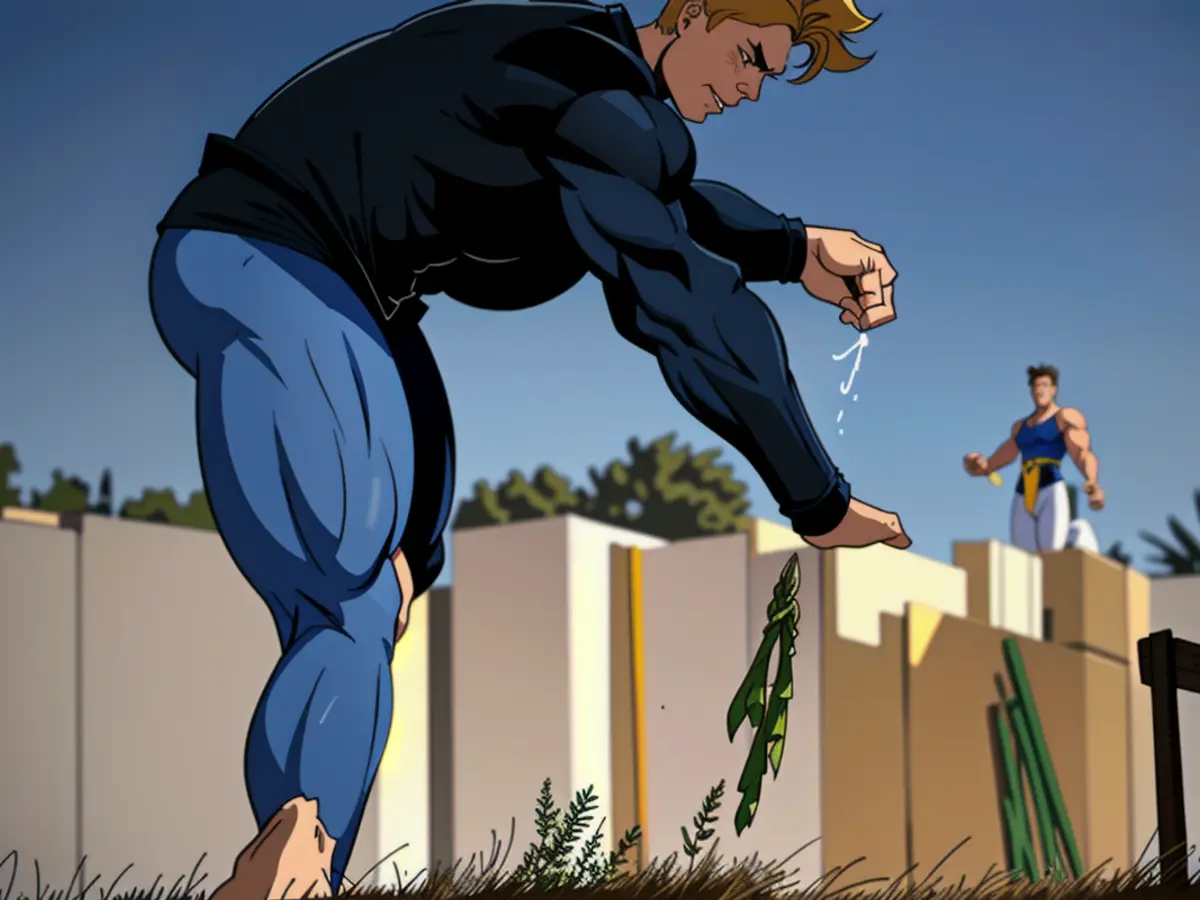Gearing Up for the White Gold Season in South Hesse
Asparagus harvesting season commences in Hesse, preparing for takeoff - Asparagus harvest initiation in Hesse's initial cultivation areas
Get ready to dig in! The warm and sunny weather has activated the asparagus growth, and it's almost bout time to savor the delicious white asparagus from southern Hesse. Many farm shops have already begun selling this delectable veggie, and soon, you'll find it everywhere—from small wooden sales stands, supermarkets, to restaurant menus.
Chantal Wendel, the new chairwoman of the Asparagus Working Group South Hesse, excitedly spoke to the German Press Agency about the upcoming season. She described the three months of asparagus season as the economic backbone for retailers, with last year's entire harvest selling out. However, the previous year saw a smaller harvest due to abnormal May rainfall, she lamented.
Rising Costs in the Field
Asparagus farmers have faced numerous issues in recent years, including increasing wage and energy costs. With the minimum wage hike from €12.41 to €12.82 at the start of January, these costs have soared even further. Staffing for the sales stands has proved to be another challenge.
"We're dealing with constant cost increases." Wendel admitted. "We need to adapt and streamline our work processes. But we'll find a way. The staff shortage in direct marketing is a hurdle faced by everyone."
Management and Staffing
"It's all about management," Wendel noted. Running a farm isn't just about tending to the fields; it's also about minding the shop—quite literally. "We determine how many sales stands we'll operate in advance. If need be, we call on grandma or our grandchildren for help."
Asparagus for Every Budget
While the price of white asparagus might not increase this year, Wendel expects to start at around €15 per kilogram. Fear not, though, as the cost of this gourmet vegetable isn't limited to high-end consumers. Asparagus is not a luxury good, and you can find options for every wallet. So-called "broken" asparagus, priced under six euros, is available for those on a tighter budget.
The Case for Local Asparagus
"Why import asparagus when we can produce it locally with a lower carbon footprint?" asks Wendel. The German asparagus industry maintains social standards and pays its workers a fair minimum wage. In comparison, those standards can be lax in exporting countries. With direct marketing offering fresh produce and high-quality standards, there's no reason to settle for lower-quality imported asparagus.
Diverse Customer Base
Wendel doesn't see a specific target demographic for domestic asparagus, whether it's at the sales stands or in farm shops. The fascination with this delectable vegetable knows no age, with everyone from teenagers to grandmas enjoying it.
Farm Closures on the Decline
Wendel expects farm closures due to economic reasons to be minimal. The main reasons for the decline in asparagus farmers have been the lack of succession in family businesses and production exclusively for the retail trade.
In 2012, there were 167 farms in South Hesse that harvested approximately 9,551 tons of asparagus from 1,830 hectares of farms. In 2024, there were only 91 farms, producing around 6,800 tons of asparagus per year, across 1,269 hectares. The asparagus season in Germany begins in the second half of April and lasts until St. John's Day on June 24th. However, it often starts in March and continues beyond St. John's Day. This year, the season in South Hesse will officially commence on April 3rd with a ceremony featuring Minister-President Boris Rhein (CDU) and the new Asparagus Queen, Svea I.
The Big Picture
As with any farming industry, weather conditions, staffing issues, and labor costs pose challenges for asparagus farmers in South Hesse. Flexibility in labor practices, strategic investments in technology, cooperative marketing, and advocating for government support are potential strategies to navigate these challenges. However, the specifics may vary, necessitating targeted research or consultation with regional agricultural associations for a tailored response.
- Chantal Wendel, the new chairwoman of the Asparagus Working Group South Hesse, has expressed concerns about rising costs for asparagus farmers, including increased wage and energy costs, and the challenge of staffing for sales stands.
- In an effort to manage costs, Wendel mentioned that her farm determines the number of sales stands to operate in advance and relies on family members for help if necessary.
- As the price of white asparagus might not increase this year, Wendel anticipates a starting price of around €15 per kilogram, while "broken" asparagus, priced under six euros, offers an affordable option for customers on a tight budget.








